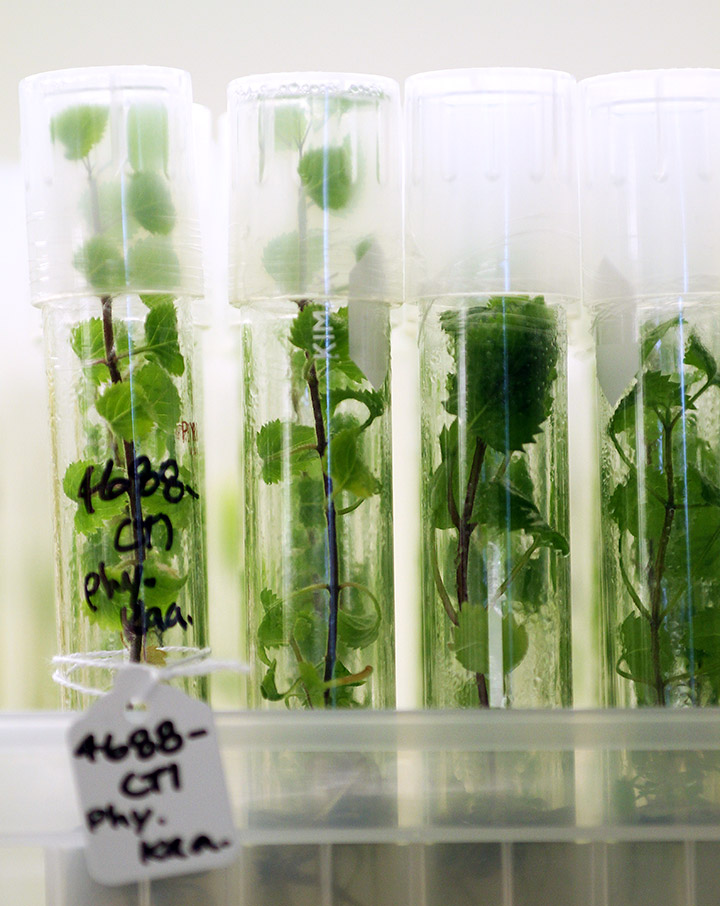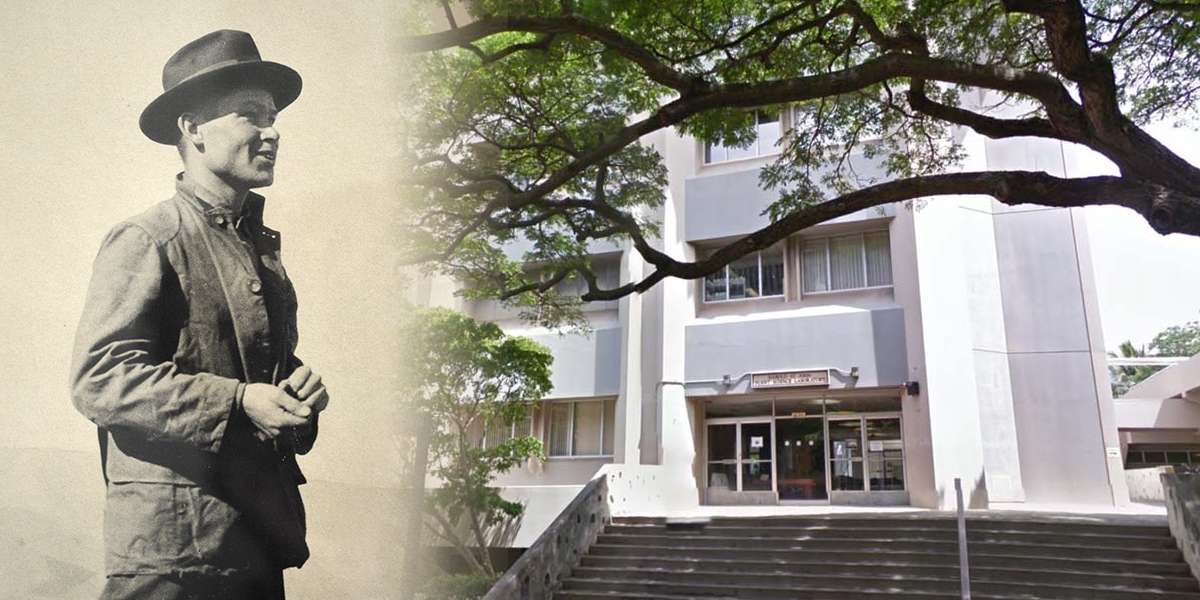Harold St. John’s career took him on adventures around the world studying rare plants and collecting specimens for the University of Hawai‘i at Mānoa and the Bishop Museum.
St. John journeyed to the tops of mountains – he climbed the 12,000-foot Glacier Peak in the Cascades twice before coming to Hawaiʻi – to catalog plant life, and traveled across the ocean on several expeditions to study the flora in the South Pacific.
He turned a 1946 grant to research pandanus in Micronesia into a 20-year project studying the plant commonly known as hala, in Australia, Asia, Africa and islands in the Indian Ocean, according to a front-page newspaper story in 1989 marking his 97th birthday. His research into pandanus resulted in the discovery of more than 500 new species.
St. John received his PhD in botany from Harvard after serving in Europe during World War I. His specialty was systemic botany, the classification of higher plants and his book, “List and Summary of the Flowering Plants of the Hawaiian Islands,” is a classic for botanists. He was the author of more than 400 books and articles over his long career. He served as an associate director of Lyon Arboretum, and the Harold St. John Plant Science Laboratory building was dedicated in his honor in 1971. St. John passed away in 1991 at age 99.
Now an anonymous donor has given $2.5 million to UH in memory of the renowned botanist for programs aimed at saving and preserving rare and endangered plants and birds in Hawaiʻi and on Maui in particular.
Because of the donor’s passion for conservation and creating a healthy environment for the future, the gifts have very ambitious and broad goals of making a difference and touch several programs that work to save endangered plants and sea birds on Maui. Additionally, the gift contributes to the health of the Maui community through support for nursing students.
Protection and conservation
Harold St. John came to Hawaiʻi to teach at UH in 1929 after teaching botany at Washington State College for nine years. He served as chairman of the botany department several times over the years before he retired in 1959.
He continued to teach in the botany department during World War II but was granted a leave of absence to lead a scientific expedition for the government into the jungles of Columbia to search for Cinchona trees, which could serve as an alternate source for making quinine, needed for treating malaria. After the war, St. John conducted studies for the U.S. Atomic Energy Commission on the effects of radiation on plants in the Marshall Islands.
Although he retired from UH in his late 60s, St. John continued to work in Bishop Museum’s botany department until well into his 90s.
The work he dedicated his life to is continued today by researchers at the School of Life Sciences of the University of Hawai‘i at Mānoa College of Natural Sciences.
 The new gift will help researchers for the Plant Extinction Prevention Program at the Pacific Cooperative Studies Unit at UH Mānoa in their work to support the conservation and protection of the rare and endangered plants in Hawaiʻi, while addressing the environmental challenges that threaten the sustainability of the ecosystems of the islands. The unit’s Maui Nui Seabird Recovery Project works to locate, protect and enhance seabird populations and habitats.
The new gift will help researchers for the Plant Extinction Prevention Program at the Pacific Cooperative Studies Unit at UH Mānoa in their work to support the conservation and protection of the rare and endangered plants in Hawaiʻi, while addressing the environmental challenges that threaten the sustainability of the ecosystems of the islands. The unit’s Maui Nui Seabird Recovery Project works to locate, protect and enhance seabird populations and habitats.
“Harold St. John dedicated his life’s work to discovering and cataloging plants around Hawaii, the Pacific and the world, and he inspired generations of botanists through his teaching and field research,” said Aloysius Helminck, dean of the College of Natural Sciences. “This generous gift will help to inspire the next generation of researchers to advance their work to protect and preserve rare plant life, honoring Harold St. John’s legacy.”
Commitment to health
And because nursing is such a vital component of a healthy environment for the whole community, a large portion of the gift creates a scholarship at the University of Hawaiʻi Maui College Nursing program that will be named for St. John.
The gift to the UH Maui College will provide extra assistance for students in the Maui nursing program.
“Mahalo to this amazing donor who recognizes the critical importance of our preserving the health of our environment, and for educating the next generation of nurses who help to preserve the health of our population,” said Lui Hokoana, chancellor of UH Maui College.
Questions? / More Information
If you would like to learn how you can support UH students and programs like this, please contact us at 808 376-7800 or send us a message.
